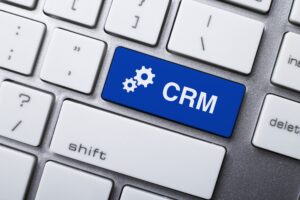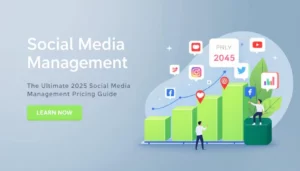
Introduction
It takes more than imagination, networking, and doing great work for clients to help an agency grow. Also, the way leads are handled, opportunities are chased, and deals are finished needs to be consistent. To frequently, agencies rely on ad hoc methods to sales, letting each team member decide how to pitch, follow up, and close. This might work for a small business, but as it gets bigger, it leads to problems very quickly.
Building a sales plan in the CRM is so important because of this. Throughout the whole sales process, it gives framework, repeatability, and clarity. Not only does a CRM sales playbook agency handle leads, but it also makes a success plan that everyone on the sales team can follow. This piece will talk about why sales playbooks are important, how they improve performance, and why the best thing an agency can do is put them in a CRM.
The Problem with Unstructured Sales Processes
A lot of companies start out with simple ways to make sales. Personal follow-ups might work best for one seller, cold outreach might work best for another, and networking might be the most important thing for a third. These methods can work, but they aren’t consistent because they don’t follow a single process. It’s hard for firm leaders to figure out what’s working and what’s not because clients have different experiences based on who they talk to.
Sales that aren’t organized also waste time and money. If there aren’t clear steps, deals can get stuck in the process, follow-ups can be forgotten, and chances can pass. HubSpot study has shown that companies with standardized sales processes do better than companies without them. Companies with standardized sales processes have higher conversion rates and faster sales cycles.
By making things consistent, a CRM-based plan fixes these issues. It makes sure that every seller knows the steps, scripts, and standards for getting leads from being interested to buying. This system makes it possible for agencies to grow without getting out of hand.
What a Sales Playbook Really Means
There is more to a sales plan than just a paper. It’s a set of actions, scripts, and strategies that sales teams can use over and over again to help clients. It has information on how to find new customers, qualify leads, deal with complaints, and close deals. For agencies, this means making a method out of what works so that anyone can use it, not just the best workers.
By putting the plan right into the CRM, agencies make sure that strategy and performance are directly in line with each other. The plan is not hidden in a PDF or training guidebook; it is where the sales process takes place. As a salesman takes a lead through the queue, they can use the CRM to get to scripts, prompts, and best practices.
According to G2 studies, businesses that add sales playbooks to their CRM see higher adoption rates and better insight into their market. This means that agencies can get new hires up to speed faster and have a more stable path to income growth.
Training and Onboarding Made Simple
When companies grow, one of the hardest things they have to do is train new people to join the sales team. Without a clear plan, training takes longer, and the results rely on the background of the seller. One way to fix this is to use a CRM plan to standardize training.
New employees don’t have to guess how to talk to customers or deal with complaints; they can just follow the steps in the plan. This regularity cuts down on ramp-up time and makes sure that salespeople with little experience can still do a great job.
Neil Patel has said many times that making processes that can be expanded is what makes a business grow or stay the same. A CRM-based plan gives companies just that method, so they can add more salespeople without lowering the quality of their work. It turns what one person knows into what an institution knows.
Improving Conversion Rates with Consistency
In sales, even small mistakes can cost a lot of money. It’s possible for a salesperson to forget to follow up, ask the right qualified questions, or handle complaints in the wrong way. These holes cost the government time and money.
Every step of the sales process is easy to see with a CRM sales plan. Salespeople know when to follow up, how to present the offer, and what materials to give out. Reminders and processes that are automated make sure that no chance is lost. HubSpot research shows that companies with clear sales processes have much higher win rates than companies that don’t.
This stability not only helps companies get more clients, but it also makes the experience better for those clients. When conversations are on time, polite, and consistent across the whole team, prospects feel like they are important.
Data-Driven Improvements Over Time
Putting a plan into the CRM also lets you keep improving it based on data, which is another benefit. Agency leaders can find out which scripts work best, which complaints cause the most delays, and where deals tend to get stuck when all sales activity is tracked in the system.
With this new information, agencies can improve their plan over time. Leaders don’t just go with their gut; they use real success data to make choices. G2’s study of CRM growth trends shows that companies that use sales analytics do much better than companies that just go with their gut.
For agencies, this means that the plan is a live document that changes as the business does. The firm stays competitive by making sure the plan changes with the market.

Conclusion
If an advertising company wants to grow, it can’t risk sales. Without framework, the sales process is not constant, doesn’t work well, and is hard to handle on a large scale. Adding a script to the CRM helps companies make a system that makes things easier to train, repeat, and get higher conversion rates.
The thought of a crm sales playbook agency shows how important this change is. From working alone to working in groups, from thinking to planning, and from not being clear to being clear, this is the change. Big names in the business world, such as HubSpot, G2, and Neil Patel, have all talked about how important structured sales processes are. If a business buys CRM playbooks, it will have steadiness, dependability, and long-term progress.
If a company wants to move up, they shouldn’t hire more salespeople right away. They should instead give the ones they already have the plan and tools they need to do well.






